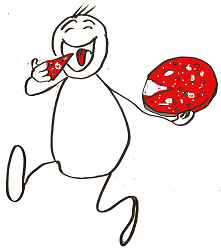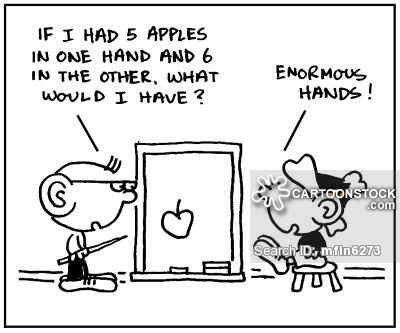Il condizionale
Condizionale presente
Si forma per la prima persona (singolare e plurale) con:
would/should + infinito presente
e per tutte le altre persone con:
would + infinito
Alcuni esempi sono:
I would eat/I should eat [tooltip] vorrei mangiare / dovrei mangiare[/tooltip]
You would eat [tooltip] mangeresti[/tooltip]
He/She/It would eat [tooltip] lui/lei/esso mangerebbe[/tooltip]
We would eat/We should eat [tooltip] vorremmo mangiare / dovremmo mangiare[/tooltip]
You would eat [tooltip] mangeresti[/tooltip]
They would eat [tooltip] mangerebbero[/tooltip]
La forma negativa, interrogativa e interrogativo-negativa si formano come al solito:
I would not (wouldn't) eat
I should not (shouldn't) eat
Would you eat?
Wouldn't she eat?

Il condizionale presente si usa:
Nel periodo ipotetico, e precisamente nell'apodosi dei periodi di secondo tipo:
If I earned more, I would be richer [tooltip] Se guadagnassi di più, sarei più ricco[/tooltip]
Come equivalente passato del futuro semplice, e cioè would e should si usano al posto di will e shall in subordinate rette da principali il cui verbo è al passato; per esempio:
I hope you will enjoy yourself [tooltip] Spero vi divertirete[/tooltip]
I hoped you would enjoy yourself [tooltip] Speravo vi divertiste[/tooltip]

Condizionale perfetto (passato)
Si forma con would/should + infinito perfetto per la prima persona (singolare e plurale) e con would + infinito perfetto per tutte le altre persone.
I would have eaten/I should have eaten
You would have eaten
He/She/It would have eaten
We would eat/We should have eaten
You would have eaten
They would have eaten
La forma negativa, interrogativa e interrogativo-negativa si formano come al solito:
I would not (wouldn't) have eaten/I should not (shouldn't) have eaten
Would you have eaten?
Wouldn't she have eaten?
Il condizionale perfetto si usa:
Nel periodo ipotetico, e precisamente nell'apodosi dei periodi di terzo tipo
If you had asked me, I would have told you [tooltip] Se me l'avessi chiesto, te l'avrei detto[/tooltip]
Come equivalente passato del future perfect, e cioè would have e should have si usano al posto di will have e shall have in subordinate rette da principali il cui verbo è al passato:
I hope you will have started [tooltip] Spero che avrete cominciato[/tooltip]
I hope you would have started [tooltip] Speravo che aveste cominciato[/tooltip]
Altri usi di would e should:
Vi sono poi altri usi di would e should, che però non sono strettamente condizionali. Qui ne vedremo tre.
Anzitutto, would (ma non should) può essere usato al posto di used to per esprimere routine passate (ma non abitudini passate che constrastano con quelle presenti):
We used to/would go to Mass on a Sunday [tooltip] Di domenica andavamo a Messa.[/tooltip]
Would (ma, ancora, non should) può anche essere usato come passato di will per esprimere ostinazione:
I told her a thousand times, but she wouldn't listen [tooltip] Gliel'ho detto mille volte, ma non mi ascoltava[/tooltip]
Infine, would e should si possono usare in frasi come I should/would think + that-clause o I should/would (not) think so. Per esempio:
Will it be raining tomorrow?I shouldn't think so [tooltip] Pioverà domani? Non direi[/tooltip]
What will the weather be like tomorrow? I should think (that) it will be raining. [tooltip] Che tempo farà domani? Direi che pioverà[/tooltip]
La differenza tra costruzioni come queste e altre tipo I think so e I think (that) it will be raining, che non sono intercambiabili, è che quelle con should implicano un'incertezza del parlante rispetto a quello che sta dicendo.
Pertanto, I shouldn't think so esprime qualcosa come Direi di no (ma non sono sicuro), e I should think that... esprime qualcosa come Direi, ma non ne sono certo, che...
Vi è poi un uso analogo di would have e should have:
We're having the hottest Summer in years. [tooltip] Sta facendo l'estate più calda da anni![/tooltip]
I shouldn't have thought so, we had such a cold Spring! [tooltip] Non avrei detto, ha fatto una primavera così fredda![/tooltip]
Altri verbi, oltre a think, possono essere usati: say, imagine, wonder, expect... Per esempio:
I shouldn't wonder if it rained tomorrow [tooltip] Non mi stupirei se domani piovesse[/tooltip]
You enjoyed yourself, I should imagine [tooltip] Ti sei divertita, immagino[/tooltip]